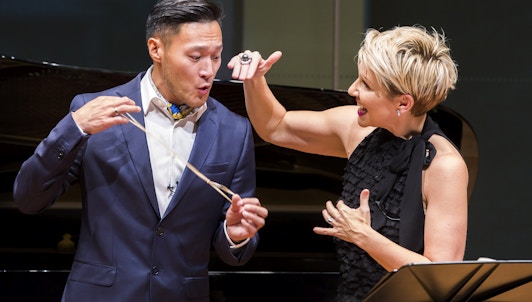…but I couldn’t. I kept
watching/listening because of Michael Fabiano, and he did a great job. I love
his singing, and generally he is a good actor (but he didn’t have a lot of help
here). The other principals sang well, and did their best at the acting part,
particularly Viti Praante and Kristina Mkhitaryan. But they were left high and dry by
their director, Nicola Raab. She talked a good game; but it didn’t pay
off. Il Corsaro is based on a Byron poem, so she cast Corrado
(the Corsaro) as the poet. In the first part of the opera, he remembered things
past (Acts 1 and 2) and seemingly lived out the conclusion in Act 3. Somewhere
in Act 2, it seemed he was working on writing the story.
Even knowing this, it
was rather confusing. Framing an opera as a flashback is not a new idea (but
it’s not a bad idea, either) but it wasn’t very clear. Gulnara, who in the
plot, dies at the end of the opera, seems to rise from the dead to do her first
scene in Act 1, then take poison and die before the Act 1 curtain. Then she’s
back for the finale of Act 3, apparently still dying. Corrado (Mr. Fabiano)
throws himself off a cliff (according to the libretto) at the end, but he and
the two sopranos (the baritone was really dead—and in another country) simply
turned away from the audience at the end of the final scene.

